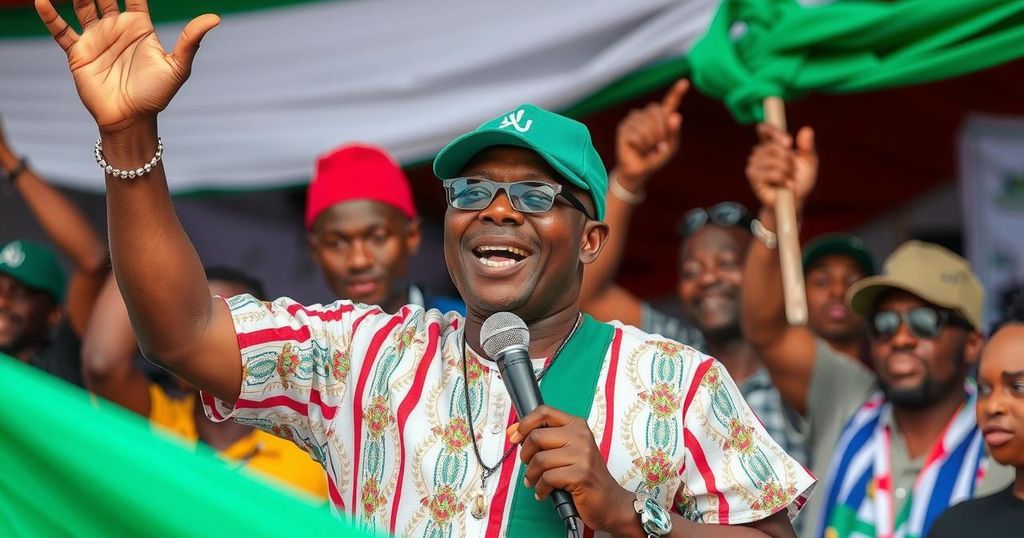Ghana’s opposition, led by John Mahama of the NDC, claims victory in the recent presidential election with a lead over NPP’s Mahamudu Bawumia. Despite provisional results indicating a significant vote percentage for Mahama, the electoral commission is still compiling official tallies, expected by Tuesday. Economic issues have been central to voter concerns, with reports of both candidates drawing stark contrasts in their campaigns.
Claims have emerged from Ghana’s opposition party regarding victory in the recent presidential election, with candidate John Mahama allegedly securing a dominant lead, according to initial results. However, electoral authorities have indicated that they are still in the process of finalizing the official outcomes of the election. The contest unfolded primarily between Mahama of the National Democratic Congress (NDC) and Vice President Mahamudu Bawumia from the ruling New Patriotic Party (NPP), who faced scrutiny over ongoing discontent related to governance and economic hardship.
The economy of Ghana, which has been struggling with issues such as debt defaults and high inflation rates, took center stage in the election. Voters were selecting a successor for President Nana Akufo-Addo, who is concluding his maximum allowable two terms. The NDC’s spokesperson, Sammy Gyamfi, revealed that their internal results indicate Mahama received 56.3 percent of the votes compared to Bawumia’s 41.3 percent, asserting that the populace has decisively voted for change.
Preliminary figures from some local media, including ChannelOne TV, have echoed these findings, indicating Mahama’s lead in the counts. It is worth noting that the electoral commission has confirmed that the official results will be announced by Tuesday. During the election process, although voting was generally peaceful, there were reports of violent incidents leading to fatalities.
Historically, Ghana has been a stable democracy with the NPP and NDC alternating power since the restoration of multi-party politics in 1992. Bawumia’s campaign aimed to achieve an unprecedented third term for the NPP while grappling with the previous administration’s economic track record. Despite a decline in inflation rates, economic challenges continue to resonate with the electorate, presenting an opportunity for Mahama’s potential resurgence as he advocates for a change after unsuccessful attempts since his presidency from 2012 to 2017.
The political landscape in Ghana is characterized by a historical pattern of alternating power between the National Democratic Congress (NDC) and the New Patriotic Party (NPP) since 1992. The nation has recently experienced significant economic turmoil, including a debt default and high inflation, which has sparked public dissatisfaction with the ruling party’s policies. Against this backdrop, the recent presidential election served as a critical moment for the opposition to capitalize on voter frustrations and present their candidate, John Mahama, as a viable alternative. The election’s outcome carries considerable weight for Ghana’s democratic processes and economic recovery efforts, especially as the country navigates its relationship with international financial institutions following a $3 billion IMF bailout.
In conclusion, the Ghanaian opposition’s assertion regarding their candidate’s victory in the presidential election highlights profound public sentiment for change against the backdrop of economic struggles. While unofficial results indicate a significant lead for Mahama, the electoral commission continues to finalize the official figures. The upcoming announcements will clarify Ghana’s political direction amidst ongoing economic challenges, reflecting the electorate’s desire for effective governance and stability.
Original Source: www.barrons.com






